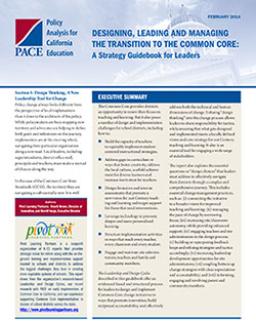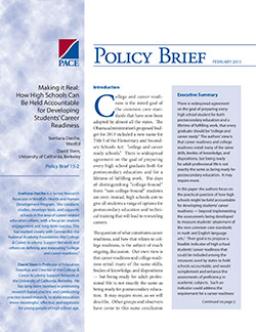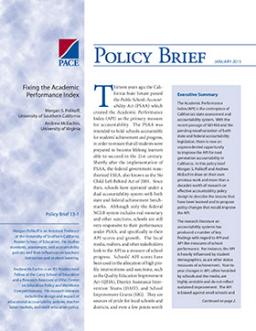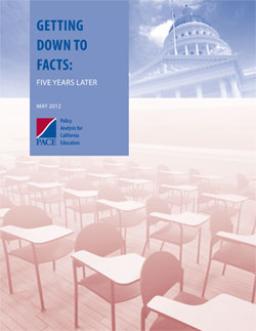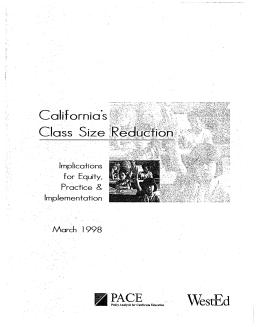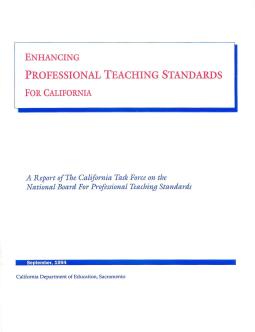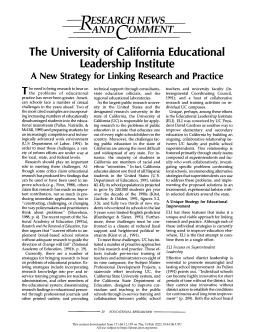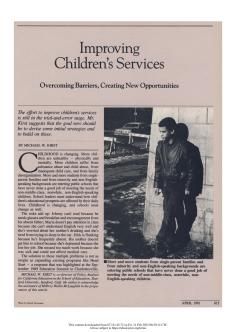A Strategy Guidebook for Leaders
Published
Summary
The Common Core presents challenges for school districts in teaching and learning. This guidebook provides evidence-based solutions to build teacher capacity, address curriculum gaps, design assessments, leverage technology, engage stakeholders, and manage change. It emphasizes the importance of design thinking, focusing on essential change management practices, and connecting the initiative to a broader vision for improved teaching and learning. The goal is to promote innovation, build reciprocal accountability, and effectively address both technical and human dimensions of change.
Published
Summary
The Common Core State Standards (CCSS) aim to improve public education by increasing expectations, deepening subjects, and providing an active curriculum. These goals include addressing disparities in U.S. student performance, reducing remediation rates, improving workplace readiness, and promoting civic participation. Equitable CCSS implementation can help close opportunity and achievement gaps affecting low-income, minority, and English learner students, with all standards expected of all students. California has a unique chance to improve education by implementing the CCSS effectively.
How High Schools Can Be Held Accountable for Developing Students' Career Readiness
Published
Summary
Preparing every high school graduate for postsecondary education and fulfilling work is the goal of common core standards. Career readiness and college readiness share many of the same skills, knowledge, and dispositions. Being ready for professional life requires additional transferable skills to support success throughout a lifetime of changing circumstances. The importance of transferable skills is emphasized by many groups and observers.
Published
Summary
The California Academic Performance Index (API) is limited by demographics, instability, and narrow focus on test scores. Experts recommend tracking individual students' progress, measuring achievement growth over multiple years, and using alternative performance measures. Improving API could enhance accountability systems and target educational improvements.
Five Years Later
Published
Summary
This report commemorates the fifth anniversary of the Getting Down to Facts project, which sought to provide a thorough and reliable analysis of the critical challenges facing California’s education system as the necessary basis for an informed discussion of policy changes aimed at improving the performance of California schools and students. The report focuses on the four key issues that received emphasis in the Getting Down to Facts studies: governance, finance, personnel, and data systems.
From Governance to Capacity Building
Published
Summary
Education reform efforts in Los Angeles and the US have failed due to the focus on governance and rules. The solution is to invest in capacity building, creating incentives and agency for students and teachers, easing adoption through regulatory relief, and financing those working on new learning models. The goal is to update the century-old model of learning, called Learning 1.0, with a new model, Learning 2.0, that builds an education system around the learning system. This approach is based on research into unconventional learning models.
Implications for Equity, Practice, and Implementation
Published
Summary
In 1996, CA launched a $1 billion class size reduction (CSR) initiative to improve early literacy. The initiative provides $800 per student to schools reducing class size to 20 or fewer in first, second, and/or third grade, and kindergarten. CSR was funded due to a state revenue surplus and the belief that smaller classes would enhance early literacy. CA ranked second to last in national reading tests in 1994, and class sizes averaged around 28.6 students per K-3 classroom. While educators and the public show enthusiasm, the success of CSR in enhancing academic achievement is yet to be seen.
A Report of the California Task Force on the National Board for Professional Teaching Standards
Published
Summary
The California Task Force on the National Board for Professional Teaching Standards, consisting of educators, administrators, parents, and officials, deliberated for eight months on how a national voluntary certification system can impact California's education landscape. They explored questions on the standards, assessment methods, incentives, and potential benefits for teachers, students, and communities. The report aims to start a dialogue and encourage continued improvement in California's schools.
A New Strategy for Linking Research and Practice
Published
Summary
The US faces critical challenges in education, such as incorporating disadvantaged students and preparing them for a competitive, tech-driven work environment. To meet these challenges, reform efforts are underway. Despite claims that educational research has produced few applicable findings, it has contributed by changing how policymakers and practitioners think about problems. The National Academy of Education argues that implementing broad-based reforms without adequate research will fail. Research must play an important role in meeting these challenges.
Overcoming Barriers, Creating New Opportunities
Published
Summary
This article highlights the changing nature of childhood, with increasing physical and mental health problems, substance abuse, child abuse, inadequate child care, and family disorganization. Furthermore, schools struggle to meet the needs of non-middle-class, nonwhite, non-English-speaking children, as more students from these backgrounds enter public schools. To improve educational prospects, school leaders must recognize how children's daily lives affect their education and adapt to these changes.
